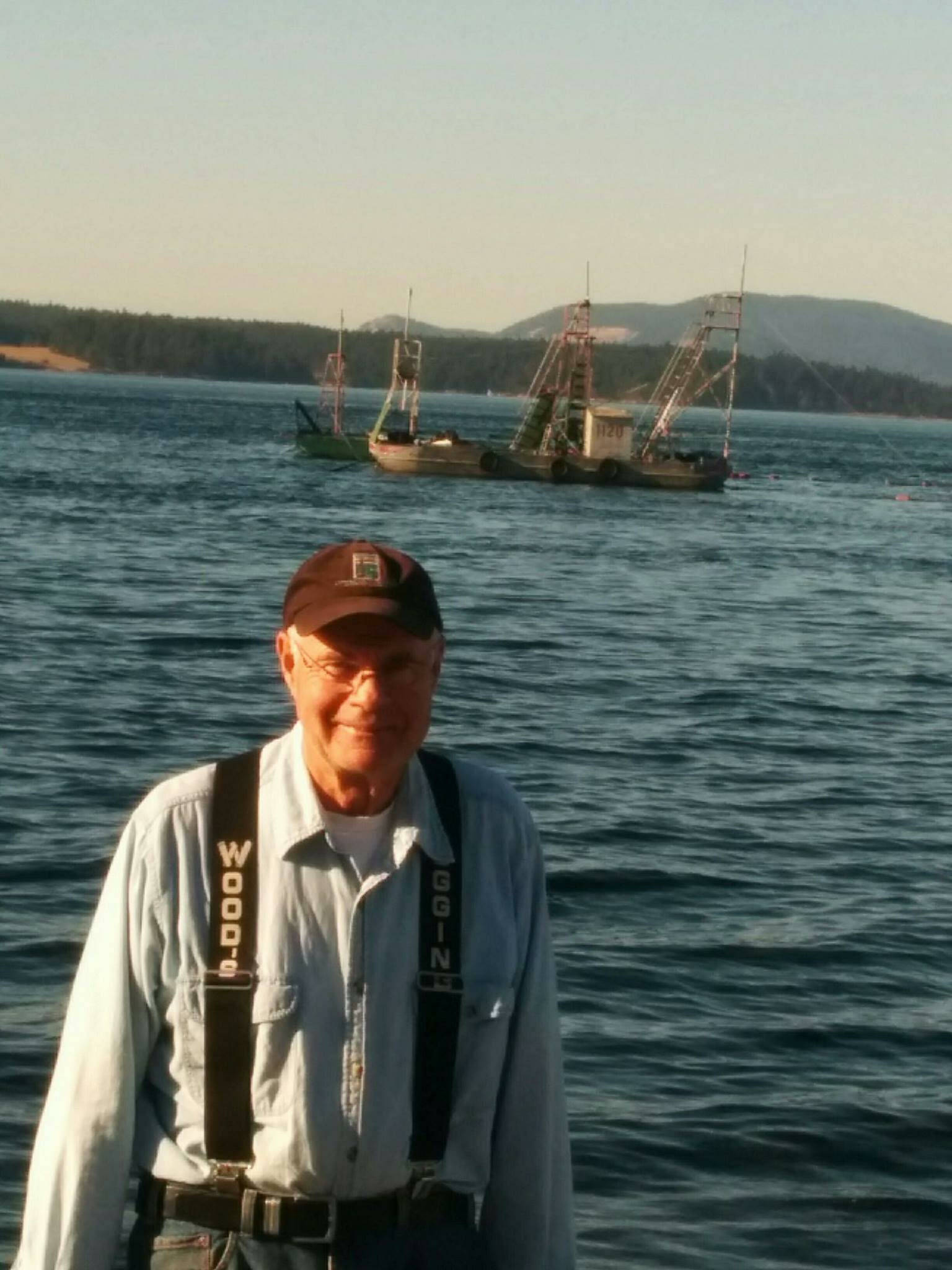** This event has been postponed due to an increase in county COVID cases. ***
Submitted by the Lopez Historical Society and Museum.
The modern history of reef net fishing in the San Juan Islands and current efforts to revive the ancient tradition by Lummi and Saanich tribal members will be explored in a presentation May 14 at 7:30 p.m. sponsored by the Lopez Island Historical Society. The evening event will be held at the Lopez Community Center.
The panel discussion will feature Jack Giard, long-time Lopez Island reef net captain and member of the Pacific Salmon Commission, and Troy Olsen, co-founder of Whiteswan Environmental and a Lummi fisherman who has worked to reintroduce reef net fishing to Lummi and Saanich tribes. The discussion will be moderated by Museum Director Amy Frost.
Reef net fishing for salmon is unique to the Straits Salish peoples, Frost said and dates back over a thousand years. A current exhibit at the Museum, “Sx’wálech to Lopez: Impacts of Colonialism on the Straits Salish,” includes some of the history and cultural importance of reef net fishing to the Straits Salish people, who saw the practice not only as a source of food and a trade commodity but also as central to their spiritual practices and beliefs.
In advance of the talk, Troy Olsen pointed to the Lummi’s origin story in which The Creator provided the aboriginal saltwater people with salmon and reef nets along with sun, fire, and spears. But Olsen said the tribes have had to wage a “long historical battle” for their treaty rights. In the early decades of the 1900s, he said, tribal fishermen, including his grandfather, had their reef nets slashed and faced cannery operators who refused to buy Indian-caught salmon.
Today, he said, the revival of reef net fishing is an important part of the tribes’ efforts to help their members reconnect with their traditional practices and ways of life.
“I want our people to know what it’s like to catch a wild salmon in prime condition. That’s a beautiful thing,” Olsen said. “I want future generations to have the opportunity to put their hands on a reef net.”
Lopez resident Jack Giard was just 18-years old when he started reef net fishing. Now 82, he can remember when he and his partners worked five operations around Lopez, including at Fisherman Bay, Iceberg and Davis Bay. But he said the numbers of reef net gear in Puget Sound have fallen from a peak of 125 in 1949 to just 11 state-licensed operations today.
Giard said the advent of purse seiners and gillnetters, which are more mobile than the fixed and anchored reef-nets, but also more expensive, caused many fishermen to abandon the ancient method. Additionally, he said, ongoing international negotiations with Canada have resulted in a dramatic decline in the allowable salmon catch, from 50 percent down to 16.5 percent today. He said that two-thirds of that now goes to the tribes whose treaty rights to salmon harvests have been repeatedly upheld in court.
Indeed, Giard said, the tribes’ increasing clout may be what saves fishing in the Salish Sea. “The political influence of the tribes is one of our greatest hopes to preserve our salmon fishing industry.”
Reef net operations remain an iconic part of Lopez Island history. The remnant of reef net fishing gear is a prominent feature at the mouth of Fisherman Bay where decaying boats with long ladders for spotting fish can be seen on the beach of Fisherman Bay Spit Preserve.
The suggested donation for Living Tradition: Reef Netting in the San Juan Islands is $10.



